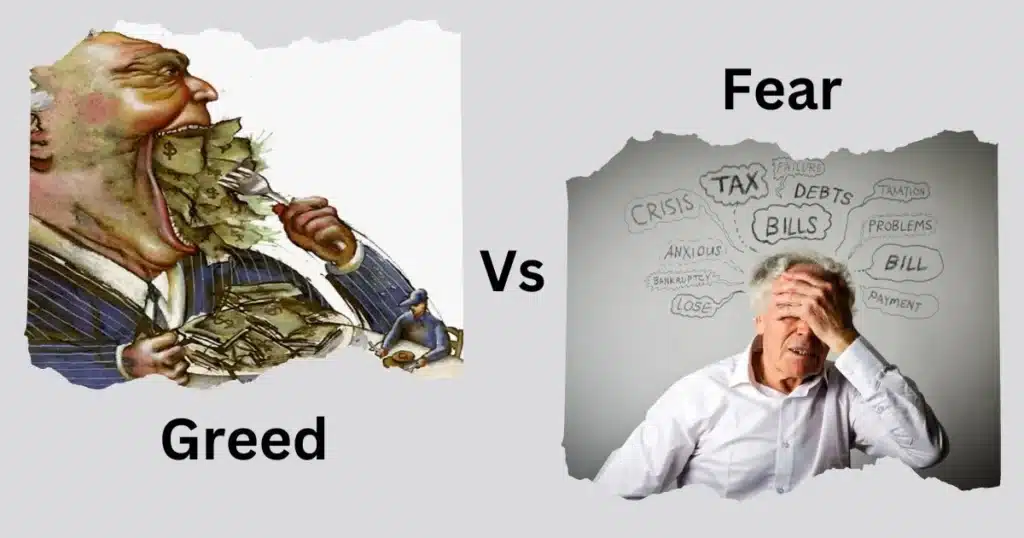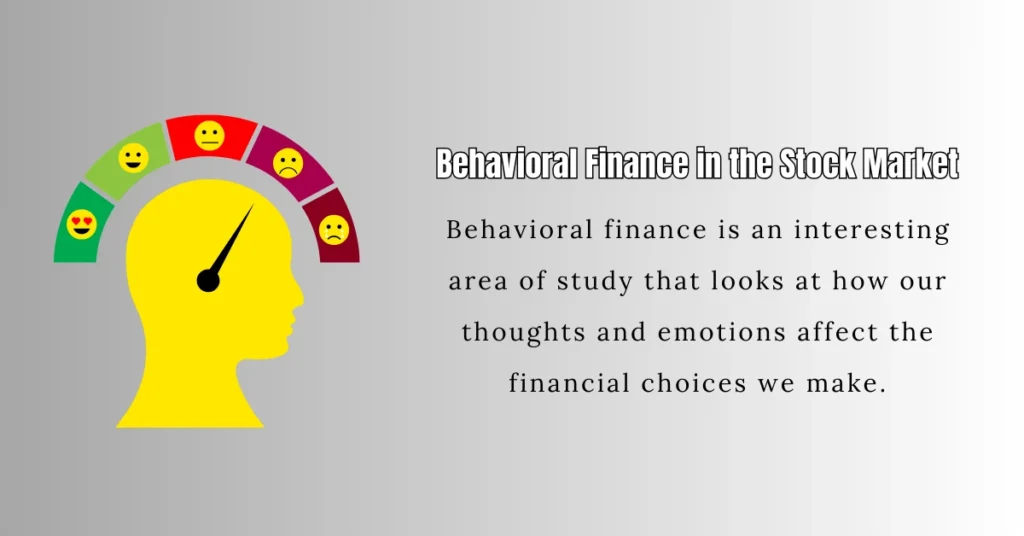Greed and Fear in the Stock Market
Understanding greed and fear in the stock market is crucial for investors. Greed, driven by an excessive desire for wealth, can lead to impulsive decisions, overtrading, and a disregard for fundamental analysis.
On the other hand, fear, fueled by loss aversion and the fear of missing out, can result in panic selling and herding behavior.
Striking a balance between these emotions is essential for successful investing, requiring self-awareness, emotional discipline, and a rational investment strategy that includes diversification, risk management, and a long-term perspective.
By understanding the influence of greed and fear in the stock market, investors can make informed decisions and confidently navigate the stock market.
What is greed in the stock market?
Greed, an excessive desire for wealth or material possessions, plays a significant role in the stock market.
It can drive investors to make irrational decisions, overlook fundamental analysis, and seek quick profits.
One example of greed’s influence is the desire for quick profits through speculative trading.
Investors driven by greed may frequently buy and sell, chasing short-term gains rather than focusing on the underlying value of the companies they invest in.
The dot-com bubble of the late 1990s and early 2000s. The rapid rise of internet-based companies fueled investor enthusiasm and created an environment of irrational exuberance.
Companies with little or no profits commanded exorbitant valuations, driven by the fear of missing out on potential profits.
However, when the bubble burst, many internet companies failed, and investors experienced substantial losses.
This event serves as a cautionary tale against speculative investing driven solely by greed and hype.
It highlights the importance of conducting a thorough fundamental analysis and evaluating a company’s profitability, competitive position, and long-term prospects before making investment decisions.
What is Fear in the stock market
Now let’s understand What is Fear in the stock market.
Fear is an emotion that can have a profound impact on investment decisions. In the stock market, fear often manifests as loss aversion and the fear of missing out (FOMO).
Loss aversion refers to the psychological tendency of individuals to strongly prefer avoiding losses over acquiring gains of an equal value.
This aversion can lead investors to make irrational decisions such as holding onto losing investments for too long, hoping for a rebound, or selling winners too early to secure small gains.
The fear of missing out (FOMO) is another powerful force in the stock market. When investors see others profiting from certain stocks or witnessing a rapidly rising demand, they may experience anxiety and a fear of being left behind.
This fear can drive impulsive and emotionally driven investment decisions, leading to herd behavior and speculative bubbles.
The global financial crisis of 2008 is a prime example of fear’s influence on the stock market.
The crisis was sparked by excessive risk-taking in the housing market, fueled by greed and a lack of regulatory oversight.
Mortgage lenders offered loans to borrowers with poor creditworthiness, which led to a housing bubble.
As housing prices began to decline, borrowers defaulted on their loans, triggering a domino effect that spread throughout the financial system.
During this crisis, fear gripped investors as financial institutions collapsed, stock markets plummeted, and the global economy faced the risk of a deep recession.
Fear-driven panic selling led to a significant decline in stock prices, causing substantial losses for investors who succumbed to their emotions.
However, valuable lessons emerged from this crisis. Investors realized the importance of risk management and conducting thorough due diligence.
The crisis emphasized the need for diversification across different asset classes to reduce vulnerability to specific market sectors.
Additionally, it highlighted the significance of long-term thinking, as markets eventually recovered, and those who remained patient were able to regain their losses and even generate significant profits.
Conclusion
Understanding and managing greed and fear in the stock market is crucial for successful investing in the stock market.
Greed can lead to impulsive and risky investment choices, while fear can result in panic selling and missed opportunities.
Striking a balance between these emotions requires self-awareness, emotional discipline, and a rational investment strategy.
Investors should focus on fundamental analysis, long-term perspective, and risk management to mitigate the influence of greed and fear.
Learning from past mistakes, such as the dot-com bubble and the global financial crisis, can provide valuable insights and help investors avoid repeating history.
By seeking professional guidance, staying informed, and cultivating a balanced mindset, investors can navigate the share market with greater confidence and increase their chances of long-term success.
Remember, investing is a journey that requires continuous learning, adaptation, and a disciplined approach to overcome the challenges posed by greed and fear in the dynamic world of the stock market.
FAQ:
What are greed and fear in the stock market?
Greed and fear are psychological states commonly observed in the stock market. Greed refers to an intense desire for financial gain and can lead investors to take excessive risks. Fear, on the other hand, is a strong emotion driven by the concern of losing money, which can prompt investors to make irrational decisions.
What is the greed and fear index?
The Greed and Fear Index is a market sentiment indicator that measures the level of investor sentiment and risk appetite in the financial markets. It aims to gauge the balance between investor greed and fear by considering various factors such as market volatility, stock market performance, options activity, and investor surveys.
Where can I find the greed and fear index?
To find the current Fear and Greed Index, you can visit the official website of CNN Business (money.cnn.com) and search for “Fear and Greed Index” in their search bar. The index is updated daily and provides an indication of market sentiment based on various factors.
What does buy the fear sell the greed mean?
“Buy the fear, sell the greed” means that in investing, it is often wise to buy assets or stocks when there is fear and prices are low, and to sell when there is greed and prices are high.


